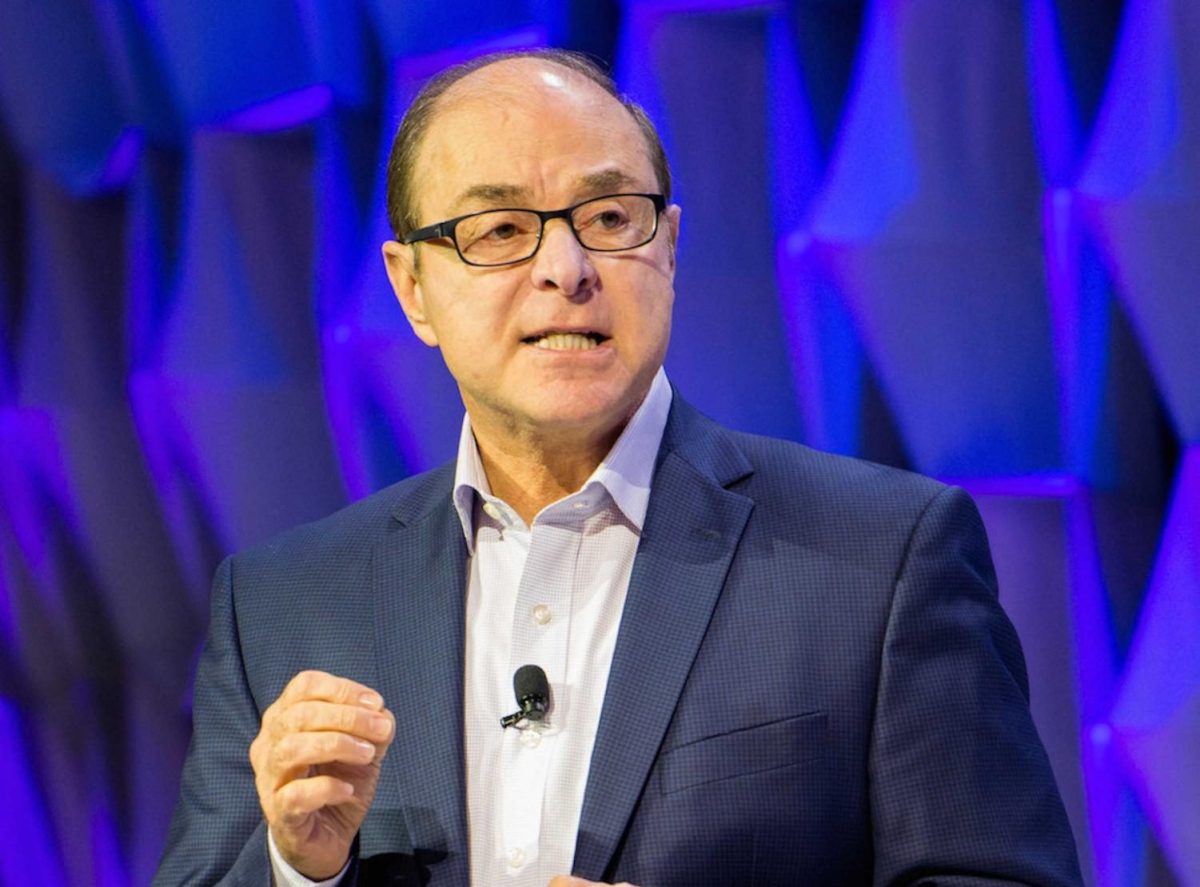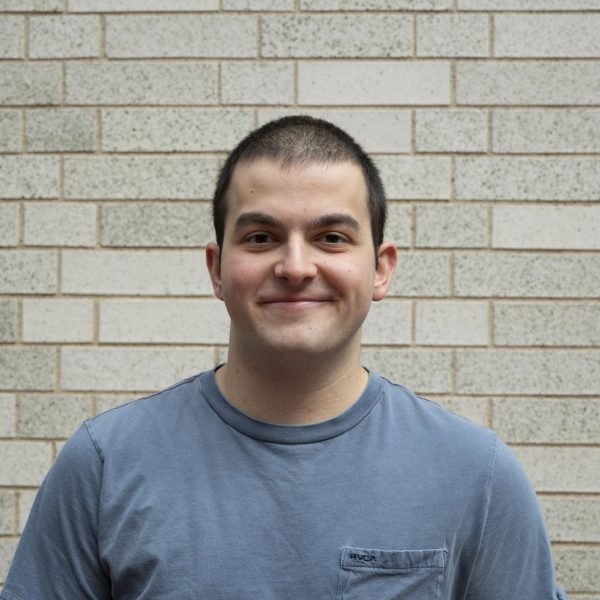In President Joseph E. Aoun’s annual address to the faculty senate Feb. 14, he gave his impression of the landscape of higher education, including where he sees the Northeastern brand and system headed in the coming years.
For the first time publicly, Aoun addressed how he sees the university handling a projected demographic cliff of students attending college after high school. He indicated he was confident the university will continue to attract students amid a forecasted nationwide drop in enrollment due to the “uniqueness” of the programs offered and the expansion of its global opportunities.
Before Aoun spoke, Provost and Senior Vice President for Academic Affairs David Madigan delivered an update on general university matters.
Kellee Tsai will begin her tenure as the dean of the College of Social Sciences and Humanities Feb. 26, Madigan said, joining Northeastern from Hong Kong University of Science and Technology.
In a significant personnel change, Madigan announced the departure of Karl Reid, senior vice provost and chief inclusion officer.
Reid joined Northeastern in 2021 as its first chief inclusion officer. He quickly implemented a series of diversity initiatives like racial literacy training, diversity officers in each college and a campus-wide diversity and equity climate survey. Reid will return to his alma mater, the Massachusetts Institute of Technology, in a similar position to the one he held at Northeastern, Madigan said.
Reid’s arrival at Northeastern was an integral part of the President’s Action Plan, which was announced in 2020, as well as the diversity and inclusion pillars of the university’s strategic vision, “Experience Unleashed.” Both of these plans were centerpieces of Aoun’s address of Northeastern’s position among other colleges.
“Over the last five to six years, only 36% of colleges and universities filled their seats,” Aoun said. “The [higher education] system as a whole is not doing well.”
With over 1 million fewer students headed to college out of high school, the effect on higher education will be significant for all institutions but more noticeable for smaller liberal arts colleges, Aoun said. Despite the enrollment cliff, Northeastern continues to attract a large number of students.
“This year, we received the largest number of applications of any private university,” Aoun said. “That’s due to the fact that we have the brand, we have the differentiation and the students are treated superbly well by the community.”
Aoun also addressed how Northeastern fits into the global picture for international students looking to attend college in countries other than the United States.
“The American higher education system is [still viewed] as the most desirable system,” Aoun said. “At the same time, we are seeing countries are being very aggressive in wanting to recruit international students.”
England, Australia and Canada, specifically, are three countries working harder to appeal to international college students, Aoun said. Canada, for instance, offers permanent residence applications to students as they complete their studies.
“Another differentiation that we’re building altogether is that the students are very interested in the fact that at the undergraduate level, we are offering curricula and opportunities in Oakland and in London,” Aoun said. “What we are trying to do also is promote this mobility for students and in the whole system because that gives us … uniqueness.”
One more piece of Northeastern’s strategy that allows it to stand out from other institutions, according to Aoun, is the attention it pays to artificial intelligence in its strategic plan.
Laney Strange, professor of computer science, said that some professors feel undervalued when it comes to space allocation, specifically figuring out how, as the university grows, where it will put its new faculty.
Aoun said each individual college was responsible for allocating space efficiently.
“I’m inviting each school to take what you said and look at the space utilization because we have a paradoxical situation where we have space needs and at the same time space that is there and not used efficiently,” Aoun said. “So, it’s in your hands. Each school has to look at that and be able to map it.”
Aoun’s annual address comes amid record expansion from Northeastern in terms of enrollment and the development of a global campus system around the world. While not the first mention of this “demographic cliff” in the faculty senate, it is the first time Aoun has spoken on how the university is situated to tackle it.
“We’re growing at all levels and from this perspective, we are bucking the trend that you are seeing elsewhere. At the same time, we want to have sustainable growth,” Aoun said. “Sustainable growth has to allow us to make bets on opportunities and move the university forward and continue to build the quality and the differentiation of this place.”











